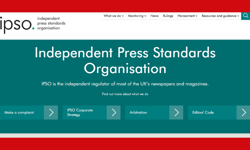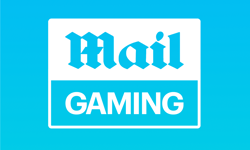Copiepresse, the Belgian publishers’ association, recently won a legal case against Google. Copiepresse asserted that the search engine was breaching copyright by referring to members’ sites. The search engine has now been forbidden from linking to these sites – though an appeal has been granted.
The Copiepresse case is the most extreme manifestation of publishers’ increasing unease about the dominant place of search engines and other aggregators on the internet. Microsoft has also now received a ‘cease and desist’ letter from Copiepresse.
Publishers’ friend?
And yet search engines were originally meant to be the publisher’s friend. Jessica Powell, spokesperson for Google, says "search engines should benefit website owners. We have far more publishers asking to be included than left out, because, on the web, visibility means traffic."
Richard Withey, global director of interactive media for Independent News & Media, estimates that search engines account for between 15 and 20 percent of hits on the Independent’s web site. Simon Waldman, Guardian digital media director and AOP chairman, says search engines account for "a sizable chunk" of visitors at the Guardian – though being far from the only source of traffic. Publishers use sophisticated tools to achieve a high search ranking, hoping this will bring visitors. "It’s like making sure you get the best position at Tesco," he says.
But the problem is that search engines and other aggregators have become more than just signposts on the information highway. Increasingly, they are becoming destinations in themselves, thus competing with the online publications to which they provide access.
Simon Waldman says the search engines have created a business that is about access to content, but doesn't recognise the value of the content being accessed. The issue is "the lack of recognition of value that’s being created by our content on an exclusive news basis" - particularly with services like Google News.
The word ‘value’ is not an empty one in this context. Money is a real issue here. Google had USD 6.1 billion of revenues in 2005 against Associated Press’ USD 654m. Alexandra White, director of the AOP, says "Some of the search engines are now extremely profitable companies – with an increasing proportion of online advertising spend going towards search. Every year, that’s the fastest growing slice of the pie." So, when a reader accesses an article via a search engine, the search engine may be making more in advertising revenue than the publisher. That seems unfair.
And, as Richard Withey points out, it is not just greed on the part of publishers. "There are genuine copyright issues involved," he says.
Indeed Google hasn't ruled out paying for some content, though Jessica Powell says its reported deal with Associated Press uses content in new ways, and doesn't apply to Google News.
Despite these concerns, many publishers appear to think Copiepresse's legal action was misguided. There is a real risk that the courts might impose solutions which are inflexible and do not help publishers in the long run.
ACAP
News International's Dominic Young, who works with the European Publishers' Council on intellectual property issues, says, "The current legal cases are a symptom of a problem but not the solution. The legislators and courts could make the rules but those rules would be out of date by the time they were applied." Instead, he says, publishers need to help improve the technology that enables publishers, search engines and other users of content to establish the rules and relationships that suit them, just as they have done in the offline world for years, and that is why he is involved with the WAN / EPC initiative, ACAP - Automated Content Access Protocol.
ACAP is a mechanism that will allow publishers to express permissions in a way the search engines’ ‘spiders’ can understand. Dominic Young says, "The philosophy behind ACAP is that it’s difficult to follow rules if you don't know what they are. Most sites have terms and conditions, but it’s impossible for a robot to tell what they are."
Jessica Powell, spokesperson for Google, points out that there is an existing protocol using robot.txt - "It’s a way for publishers to say come in, or stay away." But robot.txt is a simple yes/no gate; it doesn't allow publishers to specify particular permissions. ACAP will be a more sophisticated solution.
Simon Waldman believes ACAP is "a good initiative, delivering a tapestry approach to what content we want to be indexed." But he points out that it hasn't got charging abilities yet. However, the protocol should eventually allow a licensing framework to be built on top of ACAP. In that case, it could become a key enabler for sharing payment between search engines and publishers.
And ACAP seems to have broad support. Alexandra White says "I don't know of anyone who has come out against it." Meanwhile D-J Collins, head of corporate communications for UK, Ireland, Netherlands and Benelux at Google, has publicly supported ACAP, and two search engines are said to have signed up for a pilot. Richard Withey of Independent Media Group also believes ACAP is a useful scheme. "Rather than saying Google bad, publishers good, it says let’s control what’s going on," he says.
Content rights
ACAP is just a protocol though, and it doesn't address the underlying difficulty of a fair approach to content rights in a new medium. That will need to be worked out by publishers themselves in dialogue with the major aggregators.
The whole media arena is becoming more complex. Richard Withey calls this "the new agora", and says "it’s a new marketplace which has developed for content, and the clear relationships of the old market have begun to suffer in this new marketplace."
Any publication is, and always has been, both a content creator and an aggregator. Alexandra White points out that "if you’re an expert, a lot of it is about pointing people to resources – not necessarily on the scale of a search engine’s aggregation, but using editorial judgment."
That can create some neat ironies. A Guardian journalist recently blogged his top YouTube sports video selections with links that readers could use to view the videos. And who owns YouTube? Google. That’s rather a neat reversal of the usual content/aggregator role.
IP (intellectual property) interactions are becoming increasingly complex. For instance, ‘mashups’ might use data from two or three different sources and put it together to create added value. An example might be a map from Google Maps, with crime data from the local police force, and house prices from the Land Registry. In this case, what percentage of the final output is owned by each of the four content providers? Jessica Powell notes that "the technology is disruptive – it can create new business models."
And Richard Withey points out that some publishers are using Google to run their online advertising – another different relationship in what Jessica Powell describes as a partnership, but looks increasingly like a symbiosis between search engine and publisher. Both are dependent on each other in numerous ways.
Dominic Young warns that the search engines can help or hinder the publisher. "‘Friend or foe’ precisely encapsulates the problem. Depending on which sector of publishing you’re in, Google can be your greatest friend, or it can destroy publishing models."
Publishers no longer exist purely in a direct relationship with their readers on the web. Alexandra White notes that "search engines raise challenges for publishers in terms of how content is accessed, because they change the dynamic – there’s a proliferation of aggregators. It’s a complex relationship, and one which is changing as the market changes."
Branding, for instance, can be difficult when readers may view an item purely within Google News, and aren't able to see more than the headline and opening paragraph. Besides, even this will be displayed in Google’s format, not the publisher’s. Cacheing raises further issues where a publisher has updated a story, but search engines are still showing the older version – particularly where breaking news is concerned.
New business models
Simon Waldman believes that publishers need new business models. "We need to acknowledge that the booming advertising market is not always going to be there," he warns, "so we need to look for other sources of revenue." He suggests that, rather than simply trying to grab a share of the aggregators’ revenues, publishers need to think through what value the search engines can bring to the table, and create new models that recognise the contribution of both aggregator and publisher.
ACAP should help publishers set such models in place. Dominic Young says, "ACAP is agnostic about the actual business models publishers use – it supports a similar diversity of models online [to print], and it supports more sophisticated models."
It isn't just publishers whose market is changing, though. Simon Waldman says "Search is going to become more complex," and cites the development of vertical search engines such as Searchmedica, developed by CMP for the general practitioner market. "No one is going to cook up another Google," he says, "but the way the market’s going to evolve is towards more specialised engines." This, again, will involve a more sophisticated approach to permissions.
And it could challenge the dominance of today’s big search engines – Google, MSN, and Yahoo. Richard Withey thinks it will be interesting to see where Google’s strategy takes it in future. He says, "It’s a really big media player now," having already invested in radio advertising. Although Google still sees itself as an aggregator, not a content producer, he worries that there are no controls on cross-media ownership relating to search engines. So, it would be possible for Google to take over a publisher or even a television channel, and to compete directly with the newspapers it indexes. That’s a worrying thought, even if it’s unlikely to happen.
The relationships between search engines and publishers are still changing, and are symptomatic of a wider new media universe where rights and relationships are still being defined. Simon Waldman says, "This is not about Google, it’s not about Yahoo or MSN and it’s not about here and now; we’re moving to a decentralised content landscape and we need to be comfortable with that and what it means for us."
Copiepresse may be disappointed, then. It may have won its legal action against Google – but it has scored a Pyrrhic victory, having probably lost a fifth of its sites’ traffic by barring the search engines. And, in the longer term, it needs to do some hard thinking about what the relationship between search engines and publishers should be; because one thing is certain – you can't turn the clock back.
FEATURE
Google – Friend or Foe?
While most publishers continue to invest heavily in search engine optimisation, to drive search engine traffic to their sites, some have started to have serious misgivings about what they see as copyright infringements and unfair competition. Andrea Kirkby examines publishers’ relationship with Google & co and looks at where it is all heading.










